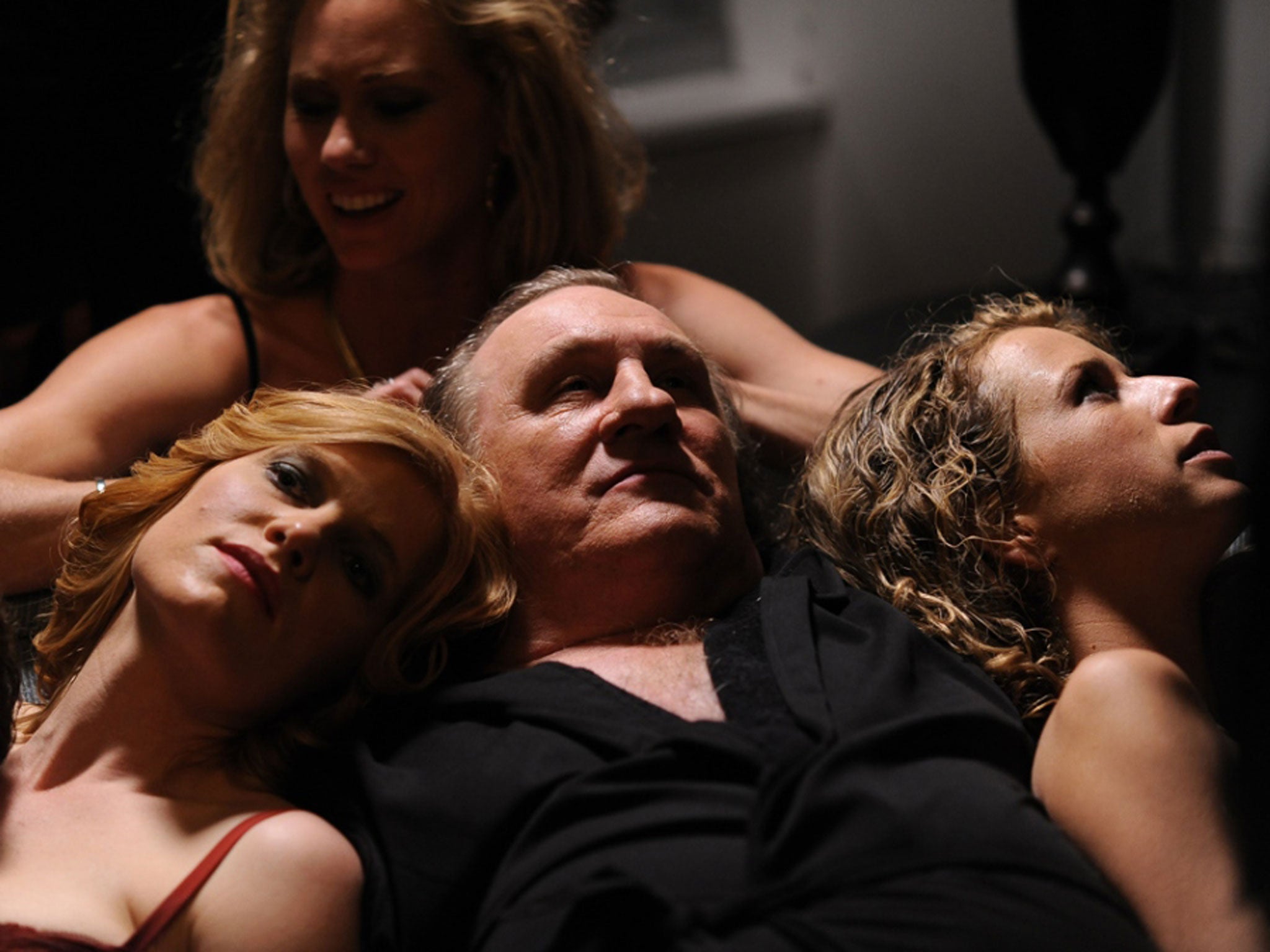Welcome to New York, first look Cannes review: Gerard Depardieu adds a sheen to grubby tale inspired by DSK affair

Your support helps us to tell the story
From reproductive rights to climate change to Big Tech, The Independent is on the ground when the story is developing. Whether it's investigating the financials of Elon Musk's pro-Trump PAC or producing our latest documentary, 'The A Word', which shines a light on the American women fighting for reproductive rights, we know how important it is to parse out the facts from the messaging.
At such a critical moment in US history, we need reporters on the ground. Your donation allows us to keep sending journalists to speak to both sides of the story.
The Independent is trusted by Americans across the entire political spectrum. And unlike many other quality news outlets, we choose not to lock Americans out of our reporting and analysis with paywalls. We believe quality journalism should be available to everyone, paid for by those who can afford it.
Your support makes all the difference.Welcome to New York screened in a makeshift tent on the beach in Cannes this weekend. It was a fitting venue for Abel Ferrara’s film, starring Gérard Depardieu as a character inspired by the disgraced French financier Dominique Strauss-Kahn. The official festival wanted nothing to do with such seamy material, which is being released online in France and is unlikely to get much exposure in mainstream cinemas anywhere.
This is a movie of an immense but very grubby pathos. Depardieu plays his character, Mr Devereaux, as a Falstaffian sex addict. He is a man who controls the economic fate of nations but can’t curb his own baser instincts.
The early part of the film plays like a 1970s British sex movie – a Gallic answer to Mary Millington’s Come Play with Me. Devereaux and his friends enjoy mini-orgies. He memorably describes bouillabaisse, the traditional French fish stew, as “a sex party for fish”. His carnal appetites simply can’t be curbed. Ferrara’s roving camera follows him fly-on-the-wall-style as he grunts his way through encounters with multiple partners.
Eventually, Devereaux heads on a business trip to New York. Here, he has the fateful, abusive encounter with the maid that lands him in jail. Back in Paris, his fragrant, very wealthy wife, Simone (Jacqueline Bisset), moves into action to try to secure him bail.
Film launched amid vulgar hype and legal doubts
The scenes of Devereaux’s arrest and imprisonment are filmed in a deadpan, matter-of-fact style that makes them seem all the more grim. One moment, Devereaux is sitting in first class in a plane due to take him home to France. The next, he is lured back into the airport, ostensibly to collect the BlackBerry he left in the hotel room, and his life is falling apart.
Ferrara isn’t much interested in the maid’s tale. Nor does the screenplay (which he co-wrote with Chris Zois) pay much attention to political conspiracy theories. Its main focus is Depardieu himself.
Early on, the financier is so boorish and insensitive that it is impossible to feel any sympathy for him whatsoever. In one flashback scene, we see him brutally trying to seduce a young female journalist – the daughter of one of his close friends.
Depardieu doesn’t try to ingratiate himself. He shows no charm. We have to take his intellectual brilliance on trust. Nonetheless, his performance is utterly fearless. We see him strip-searched and humiliated by prison guards, jostled by fellow inmates, forced to wear cuffs that cut into his wrists. Once Simone secures him bail and finds him an apartment, the couple argue incessantly in scenes that are semi-improvised. Against the odds, Depardieu is able to give a humanity to his character. “No redemption for me,” he mutters. He is fatalistic and self-destructive.
In the version of the film screened in Cannes, Depardieu appeared as “himself” before the action begins. Looking into the camera defiantly, he talked of his disdain for politicians and his anarchistic instincts. At the end of the film, there are moments when Devereaux stares at the lens in a similarly belligerent fashion. It would be a mistake, though, to see the actor – a sacred monster of French cinema – and his character as reflections of one another.
When Depardieu turned up at the end of the screening, he was far more gracious and self-deprecating than might have been expected. He spoke of the “Shakespearean” way the film deals with “power, sex and money”. Welcome to New York is squalid and joyless fare. Depardieu’s performance doesn’t achieve tragic grandeur but it is far more complex and moving than seemed remotely possible in the orgy scenes that open the movie.
Join our commenting forum
Join thought-provoking conversations, follow other Independent readers and see their replies
1Comments